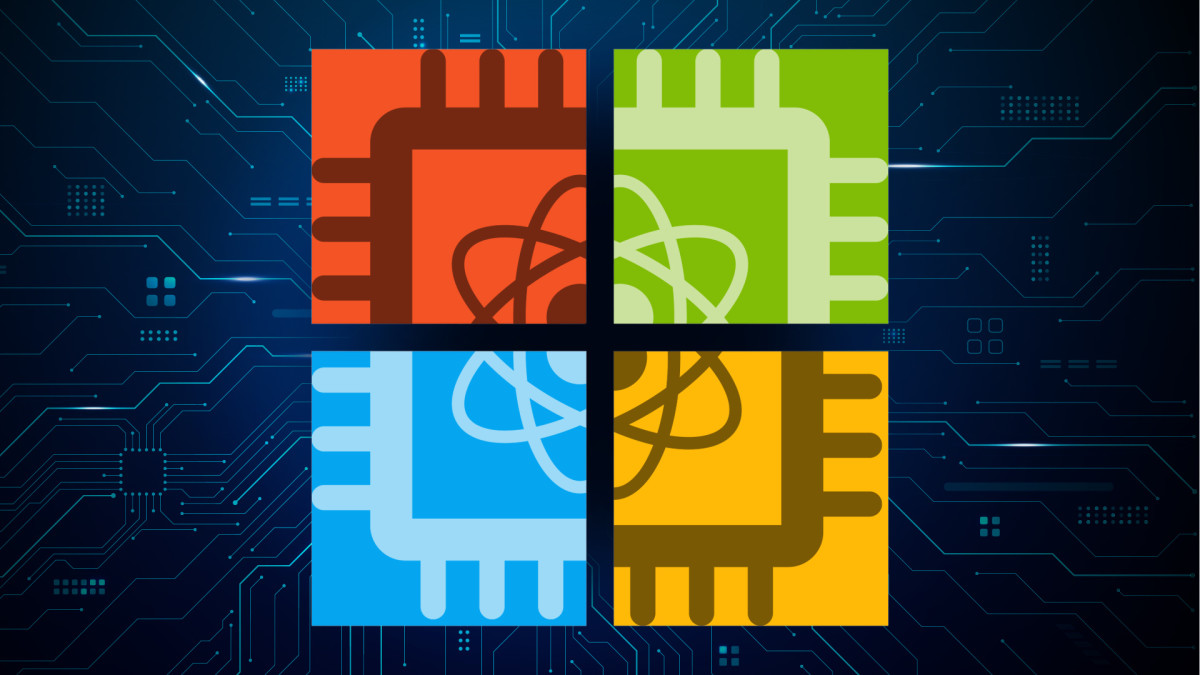
As the first month of 2025 winds to a close, investors and consumers alike are likely wondering what the defining tech trends of the year will be. Microsoft (MSFT) just provided a key update addressing precisely that.
The big tech leader has been hard at work as the artificial intelligence (AI) arms race continues to dominate market coverage. But according to a recent statement, Microsoft is focused on another area of technology that could be poised for significant growth in the coming year.
Quantum computing may not be quite as trendy as AI yet, but that doesn’t mean companies aren't zeroing in on its importance as a transformative technology. For years, experts have regarded it as highly futuristic and still far away from mainstream adoption.
However, this narrative has begun to change recently, and last week, one of Microsoft’s tech leaders revealed why she believes that the advent of quantum computing is quickly approaching.

TheStreet
Quantum computing simplified
The phrase ‘quantum computing’ may inspire pictures of complicated mathematical equations and perplexing lines of code. However, the term simply refers to a highly advanced form of computing that performs multiple tasks with extreme speed, as opposed to the classic systems that can only handle one at a time.
As TheStreet reports, "These systems utilize quantum bits (qubits) of information to solve complex problems at significantly higher speeds than traditional computers, by leveraging the principles of quantum mechanics.”
With more and more companies building and scaling AI-driven large language models (LLMs), the need for advanced computational power has become apparent. Quantum computing may solve this problem, which is likely why some experts see it as the tech sector’s next major growth market.
Microsoft’s quantum computing prediction for 2025
According to Mitra Azizirad, Microsoft’s President and COO of Strategic Missions and Technologies, 2025 is the year to become quantum-read for both her company and the broader tech sector.
In an article published on the Microsoft blog, Azizirad laid out why she believes that quantum computing is about to help shape the future of technology as demand for advanced computation power continues to grow.
“As our industry looks toward the next 12 months, the pace of quantum research and development is only going to accelerate, making this a critical and catalyzing time for business leaders to act,” she states.
She also praised the trend of global companies, investment funds and government leaders making multi-million dollar investments in the quantum computing industry, adding that “Becoming quantum-ready is both a business and a global imperative.”
Microsoft is attempting to capitalize on quantum computing’s growth by launching a new initiative geared toward helping businesses become quantum-ready. The blog post also highlights the importance of creating a hybrid platform that can integrate both quantum and classical computing techniques, as well as AI.
- Internal messages from Meta leaders reveal fierce AI rivalry
- TikTok is back, but users sound alarm on a startling change
- New grassroots group wants to save social media from billionaires
Azizirad’s positive outlook is similar to that of another expert in the field.
Dr. Alan Baratz, CEO of quantum company D-Wave Systems (QBTS) , who recently challenged the statements made by Nvidia (NVDA) CEO Jensen Huang that practical quantum computing systems are still years away, stating that this technology isn’t just approaching, it is here.
Challenges and opportunities ahead in quantum computing
Dr. Richard Murray, CEO of ORCA Computing, echoes Azizirad’s statements, noting, "The most term and exciting applications of quantum computing are currently hybrid, where quantum is used alongside high-performance computing and AI.”
He adds that over the past year, “these applications have shown great promise at showing tangible improvements over the purely classical models,” citing progress in applying generative AI to areas such as chemistry and pharmaceutical chemical predictions, finance, and logistics.
QueryPal CEO Dev Nag flags Microsoft’s recent quantum computing progress as a key step forward for the industry, stating, “The fundamental building blocks are taking shape, with recent achievements like Google's (GOOGL) Willow chip and Microsoft's 24 logical qubit milestone representing important technical breakthroughs.
Related: Google innovation could solve big problem, create huge market
However, he still believes that current quantum computing systems are not close to being able to “meaningfully outperform classical computers for real business applications,” so he regards Microsoft’s plans for helping businesses become quantum-ready with some skepticism.
“The key technical hurdles involve both scaling up the number of stable qubits while dramatically reducing error rates - current systems can only maintain quantum states for milliseconds before requiring reset,” he states. “Major breakthroughs in error correction and scalable qubit architectures may be needed for mainstream adoption.”
Nag advises investors to assess Azizirad’s statements on Microsoft’s quantum-ready initiative through a long-term lens and to account for these technical obstacles that many businesses may still encounter, stating for most industries, the next five years will be a “watch and wait phase” as quantum computing technology develops.
Related: Veteran fund manager issues dire S&P 500 warning for 2025







